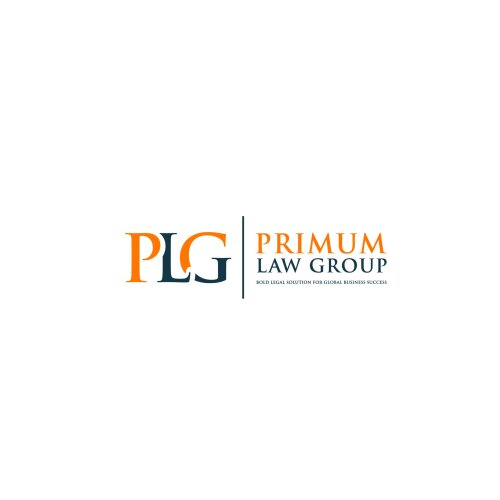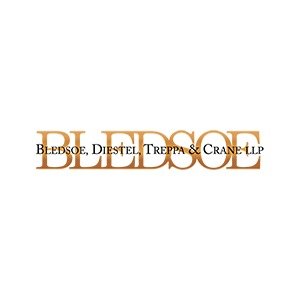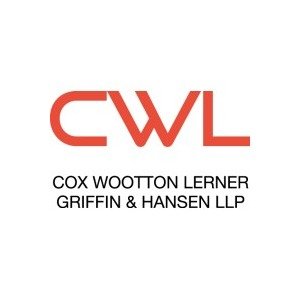Best Business Lawyers in San Francisco
Share your needs with us, get contacted by law firms.
Free. Takes 2 min.
List of the best lawyers in San Francisco, United States
United States Business Legal Questions answered by Lawyers
Browse our 1 legal question about Business in United States and read the lawyer answers, or ask your own questions for free.
- How do I legally protect my idea before selling or licensing it to a company?
- I have a makeup product idea that I want to sell or license, not the product itself. It is influenced by a product that was recently launched. Therefore, I want to sell/license to the company that launched said product. After some research, I contacted a patent attorney who explained that... Read more →
-
Lawyer answer by P.O OHIKHENA & Co
Good day,A patent will not be applicable since it's still an idea. You can go into an MOU(Memorandum of understanding) with the said company and also an NDA.You can contact me for my insight. Visit our profile and send us...
Read full answer
United States Business Legal Articles
Browse our 2 legal articles about Business in United States written by expert lawyers.
- NY 2026 Corp Tax: Thresholds & Franchise
- For tax years beginning on or after January 1, 2026, New York businesses will only be required to make estimated tax payments if their expected New York tax (including any MTA surcharge) is at least $5,000, up from $1,000. Many small and some mid-sized New York corporations and S corporations... Read more →
- Texas AI Compliance 2026 United States Data Privacy Rules
- By 2026, Texas agencies and many businesses that build, host, or support AI tools for government or consumer-facing decisions will face stricter disclosure and anti-discrimination requirements. Texas is pairing its new data privacy framework (Texas Data Privacy and Security Act) with AI-specific rules that target "algorithmic discrimination" in areas like... Read more →
About Business Law in San Francisco, United States
San Francisco is a thriving hub for businesses in various sectors, prominent among them being technology and finance. The city's business laws are formulated and enforced by state and local authorities. These laws cover areas such as business registration and licensing, zoning compliance, employment practices, tax obligations, and environmental regulations. The intricacy of the legal landscape makes it crucial for businesses to have good legal advice to navigate it successfully.
Why You May Need a Lawyer
Lawyers are essential for numerous scenarios in business. You might require legal help for incorporation, drafting or reviewing contracts, compliance matters, resolving of commercial disputes, or dealing with regulatory investigations and proceedings. Having professional legal advice from the onset can significant mitigate risks and protect your interests.
Local Laws Overview
The city has stringent regulations regarding business licensing, land use, labor laws, tax policies, and environmental compliance, among others. The San Francisco Business and Tax Regulations Code ensures businesses meet tax obligations while the San Francisco Planning Code oversees zoning. The city also strictly upholds state-implemented labor laws and its own wage ordinance, protecting wage earners. Additionally, San Francisco supports strong green initiatives, with several ordinances under the San Francisco Environment Code.
Frequently Asked Questions
1. Do I need a business license to operate in San Francisco?
All businesses operating in San Francisco need to obtain the city's business registration certificate.
2. What are the tax obligations for businesses in the city?
Businesses are subject to local taxes on gross receipts and payroll expenses, along with state and federal taxes.
3. What worker rights do I need to comply with in San Francisco?
San Francisco upholds various rights such as minimum wage, paid sick leave, and health care security ordinance, among others.
4. Can I run a business from residential areas?
Operating businesses from residentially zoned areas may require special permits under certain conditions. Consultation with a professional is advised to evaluate zoning obligations.
5. What environmental regulations apply to businesses in San Francisco?
Various environmental regulations exist, such as compliance with waste disposal practices, energy efficiency standards, and usage restrictions on certain single-use items.
Additional Resources
The San Francisco Chamber of Commerce, Office of Small Business, and San Francisco Board of Supervisors are useful resources. The San Francisco Department of Health and San Francisco Department of Environment provide insights into health-related and environmental regulations respectively.
Next Steps
If you require legal assistance, consult an attorney who specializes in business law in San Francisco to ensure you're guided correctly. Gather relevant business documents before the consultation. Always remember, understanding your legal obligations and protecting your rights is critical to the success of your business.
Lawzana helps you find the best lawyers and law firms in San Francisco through a curated and pre-screened list of qualified legal professionals. Our platform offers rankings and detailed profiles of attorneys and law firms, allowing you to compare based on practice areas, including Business, experience, and client feedback.
Each profile includes a description of the firm's areas of practice, client reviews, team members and partners, year of establishment, spoken languages, office locations, contact information, social media presence, and any published articles or resources. Most firms on our platform speak English and are experienced in both local and international legal matters.
Get a quote from top-rated law firms in San Francisco, United States — quickly, securely, and without unnecessary hassle.
Disclaimer:
The information provided on this page is for general informational purposes only and does not constitute legal advice. While we strive to ensure the accuracy and relevance of the content, legal information may change over time, and interpretations of the law can vary. You should always consult with a qualified legal professional for advice specific to your situation.
We disclaim all liability for actions taken or not taken based on the content of this page. If you believe any information is incorrect or outdated, please contact us, and we will review and update it where appropriate.
Browse business law firms by service in San Francisco, United States
San Francisco, United States Attorneys in related practice areas.
















